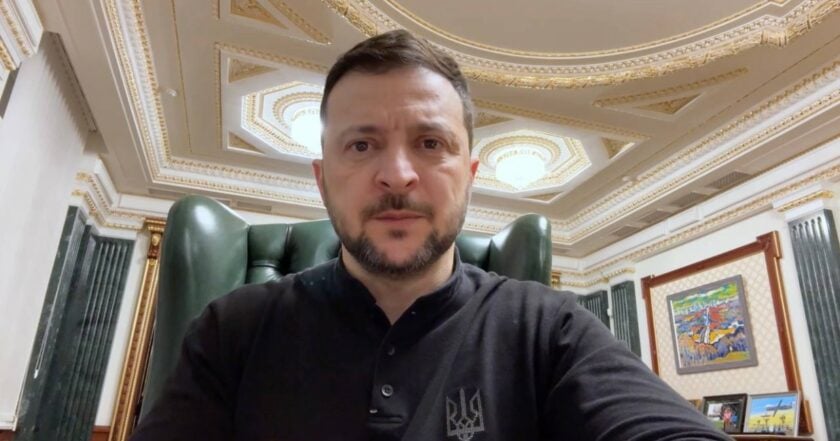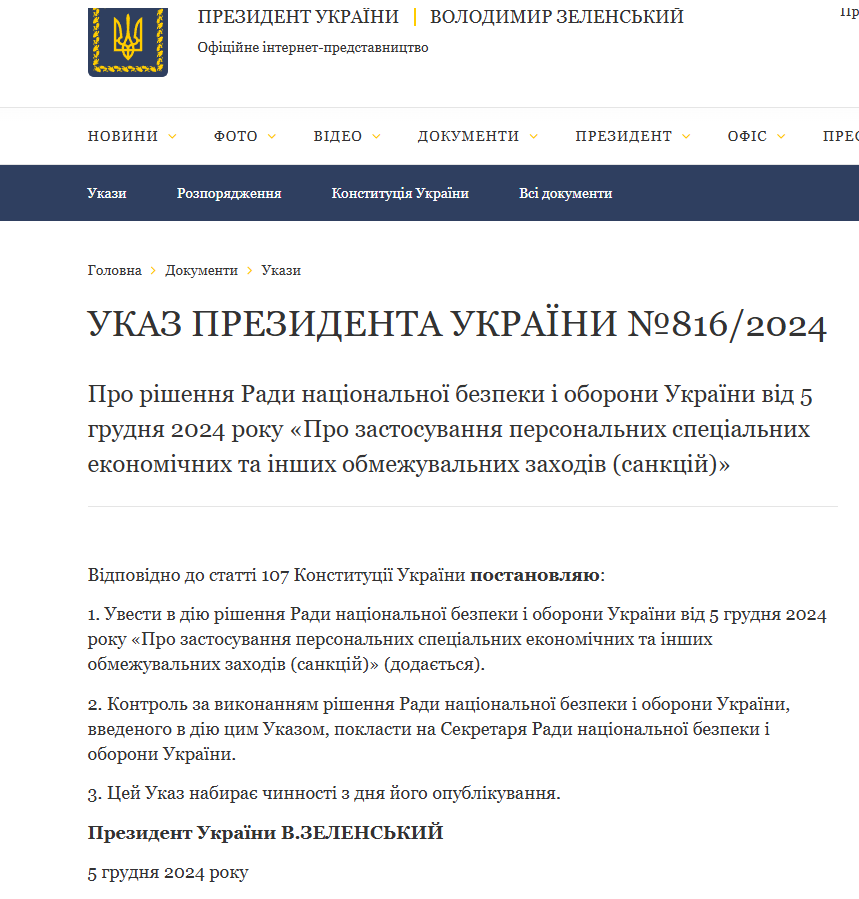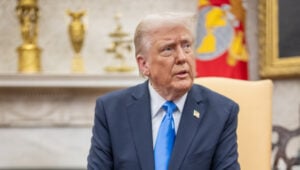Zelensky imposes sanctions against pro-Russia government in Georgia

Photo: Office of the President
President Volodymyr Zelensky signed a decree on December 5 imposing sanctions against the pro-Russian Georgian authorities, specifically targeting billionaire former Prime Minister Bidzina Ivanishvili and his associates.
Zelensky's address evidences that.
"I have just signed a decree that gives force to the National Security and Defense Council decision on sanctions.
These are sanctions against that part of the government now in Georgia that is surrendering Georgia to Putin. This is what protests are against in Georgia now," the head of state noted.
According to Zelensky, partners should also speak honestly about their current position.

Photo: Office of the President of Ukraine
"Ukraine has imposed sanctions on 19 people, including Ivanishvili and his associates, for their involvement in selling out Georgia's interests and its people. We urge Europe, America, and the rest of the world to act in the same way – to act in principle," the president noted.
As stated by the President, failure to act promptly or acting without principles will result in lost decades and countries losing their freedom.
"We cannot lose anyone in this region – neither Georgia, nor Moldova, nor Ukraine."
The head of state called for joint defense against Moscow.
The day before, President Volodymyr Zelensky instructed the preparation of sanctions against the Georgian government. He called the situation in the country, to which the Georgian authorities are pushing the people, "shameful."
For reference:
On October 26, elections to the national parliament were held in Georgia. According to the counting results, the Georgian Dream party, which was still in power, won. However, the day before, opposition Georgian political forces announced that they would not recognize the results of the elections in the country.
Also, President of Georgia Salome Zurabishvili and the opposition did not recognize the results.
On November 28, mass protests began in a number of Georgian cities, including Tbilisi, after the prime minister's statement that the government was abandoning negotiations on the country's accession to the EU by 2028.
However, security forces began to disperse the protests in Tbilisi, including using smoke bombs, tear gas, and water cannons. Dozens of activists were injured.
The Ukrainian Foreign Ministry condemned the violent dispersal of protests in Georgia.

Kyiv stands in solidarity with Kartvelians: rally planned outside Embassy of Georgia in Ukraine

"When there's a common enemy, you have to unite": Ukrainian women building bridges of friendship between Georgia and Ukraine





















































